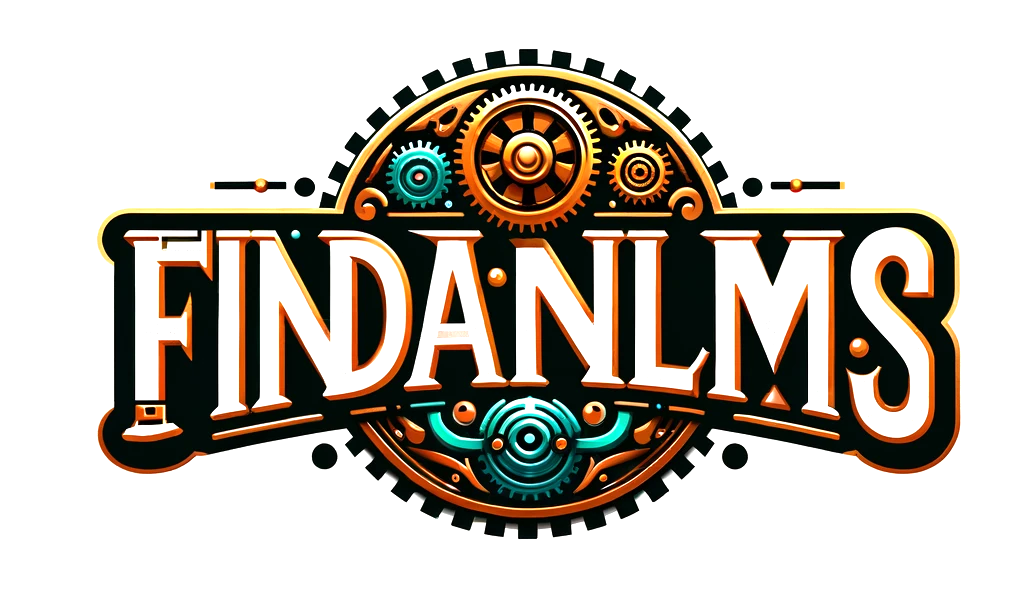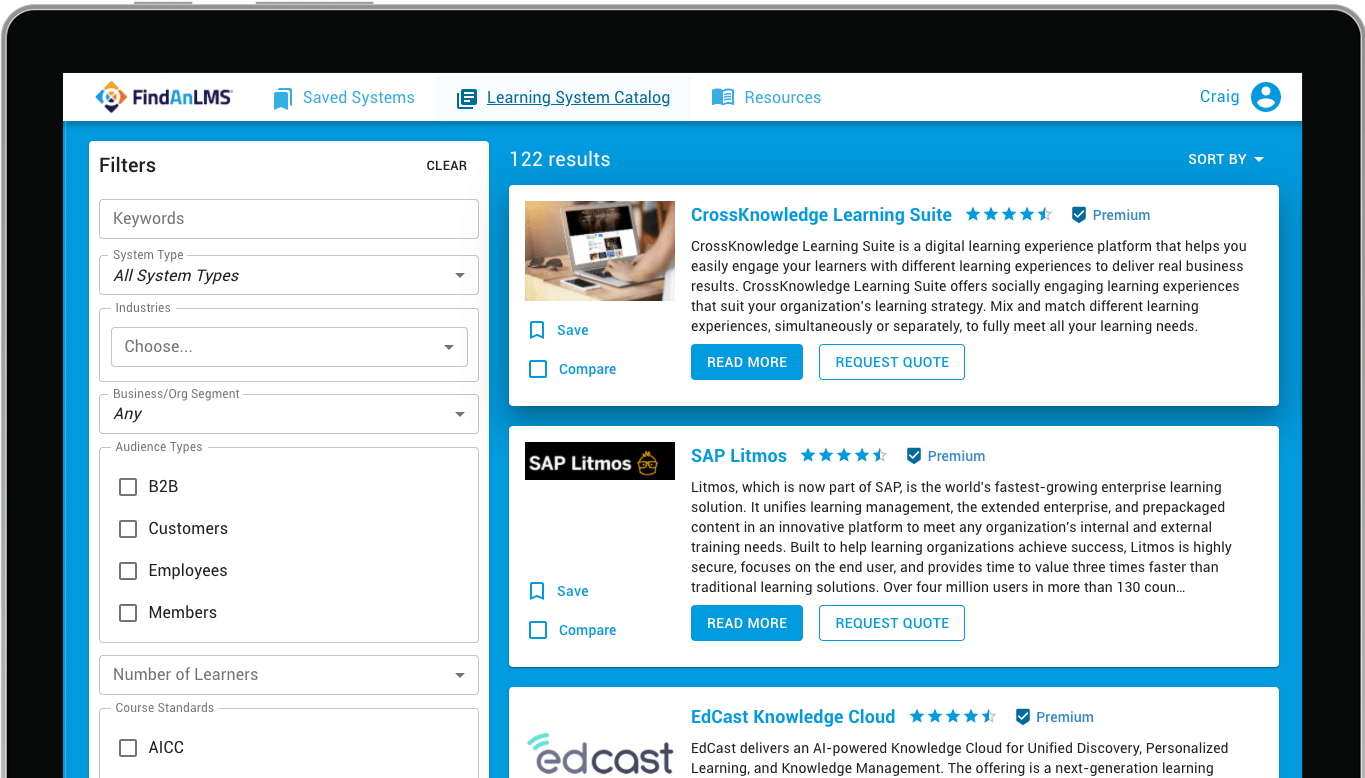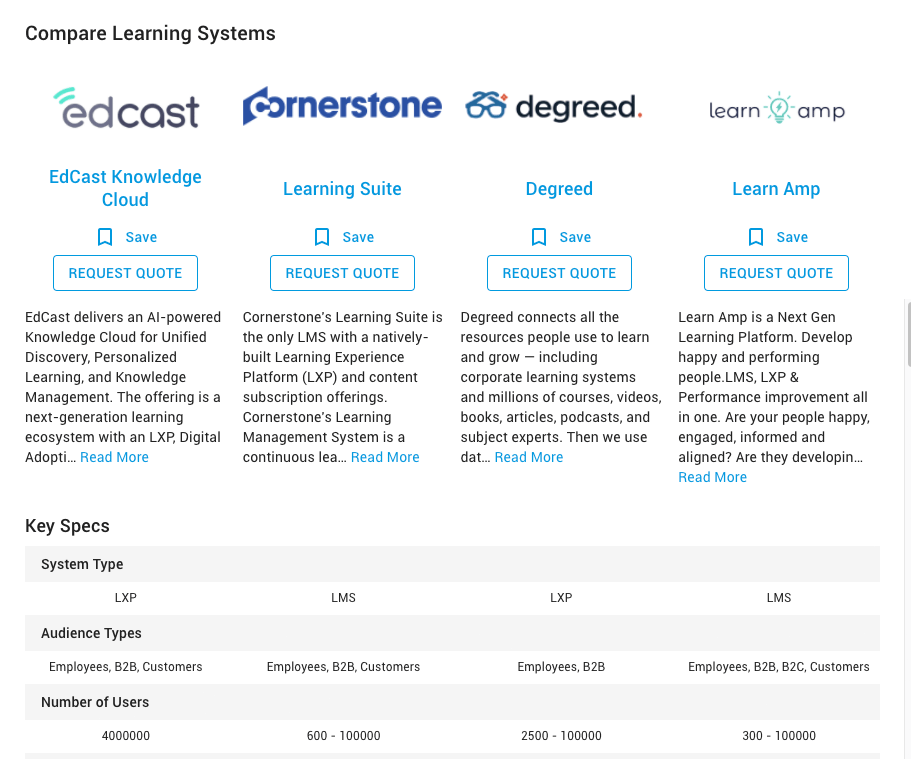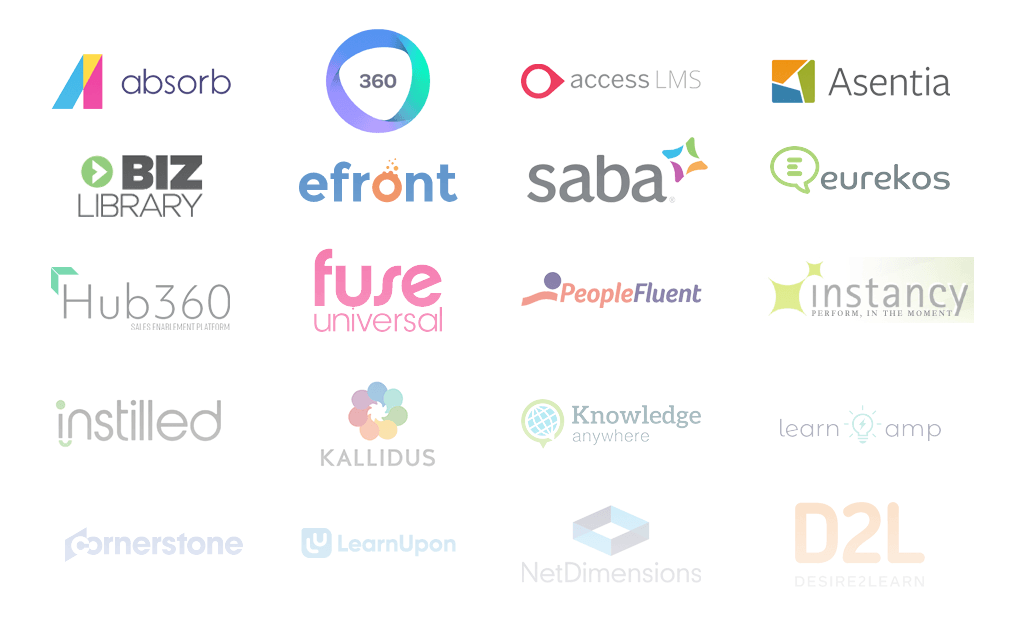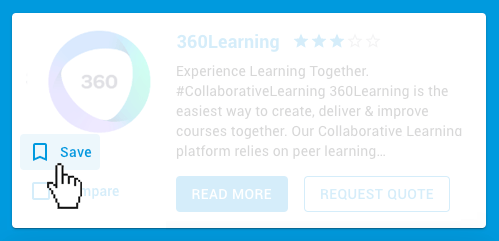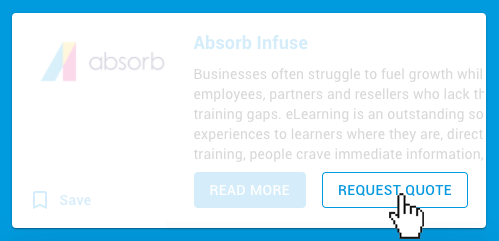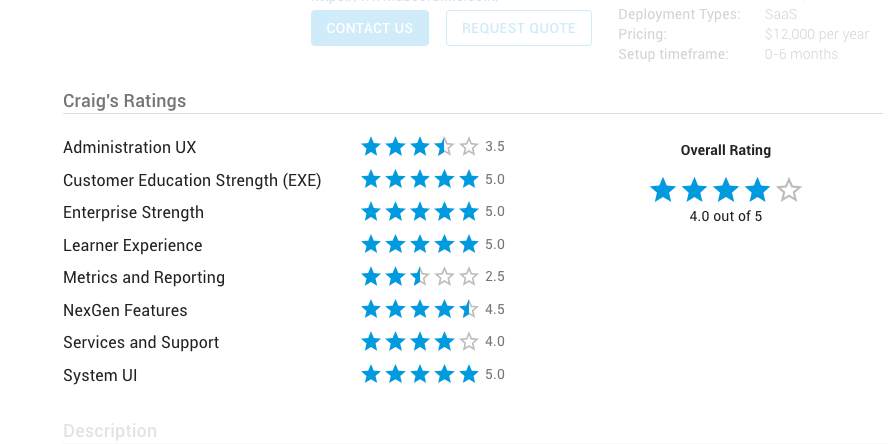There is no shortage of acronyms in the elearning space. The learning management system, or LMS, has long been the default term for describing an online training platform. However, technology companies are loathe to use old terminology to describe modern software, so many LMS vendors prefer names other than LMS. Some of the alternatives they’ve come up with include the talent development platform (TDP), talent experience platform (TXP), and learning experience platform (LXP). Some vendors eschew acronyms entirely in favor of “learning platform.”
One name you won’t see very often is LCMS, or learning content management system. The LCMS reached its peak in the mid-2010s, but consumers didn’t really understand what differentiated it from the classic LMS. Furthermore, LMS vendors began incorporating LCMS features into their software, rendering the distinction moot.
If your organization is ready to invest in elearning, the features of an LCMS will be essential. That said, the software you purchase probably won’t call itself an LCMS. Craig Weiss is an LMS expert with over two decades of practical virtual learning and training experience, and his FindAnLMS.com platform is designed to help average people compare the top names in digital learning head-to-head. You can create a free account on FindAnLMS.com right now to start researching learning management systems or continue reading for background information. The choice is yours.
What is a learning content management system (LCMS) and how can it improve training outcomes?
An LCMS (or component content management system, CCMS) is software combining course authoring tools, learning content delivery, and course publishing within a multi-user environment. Put another way, the LCMS combines the features of an LMS and CMS (content management system) into one platform.
The LCMS was invented because some saw the LMS as catering exclusively to end users: the students or employees who were learning or training. Administrators needed to create course materials to facilitate their development, analyze data to quantify the impacts of training, and maintain an extensive library of learning content. They were just as much “users” as the people training but were ignored by the LMS market. The LCMS was supposed to fill this gap.
What differentiates learning content management systems from learning management systems (LMS)?
LCMS vendors always prioritized course authoring tools in their marketing materials, and many people assumed that the “C” stood for content authoring tool. That’s not true. According to an interview with Craig Weiss in 2013, the practical implication of the “C” wasn’t course authoring but “content directories,” or file repositories that users could all access and share whether they were learners or admins. That’s not the most exciting feature, and Weiss predicted that the LCMS term would soon fall out of favor.
LMS vendors were already adopting LCMS features in 2013, and that trend is only accelerating today. For example, most LMS software solutions now include authoring tools. If you choose a vendor that doesn’t such as Absorb LMS, you can purchase an add-on authoring tool called Create LI to create courses in Absorb. Alternatively, you can leverage xAPI and SCORM integrations to add dozens of third-party content authoring tools to your Absorb ecosystem.
Similarly, you don’t need an LCMS to analyze training data because analytics are included in the admin dashboard of most LMS solutions. Nearly every platform on the market offers something out of the box, with add-ons such as DeGreed Intelligence dramatically expanding what you can do with the data. Native integration with tools such as Salesforce can also help evaluate learner performance.
Most LMS vendors offer SaaS (Software as a Service) services, meaning that learning content is stored in the cloud instead of on a hard drive. This makes it much easier to manage a library of courses without a dedicated LCMS. Indeed, admins can often enroll users in courses and look at the performance of a user on their smartphones nowadays. With the LMS doing everything the LCMS was designed to handle and more, the LCMS has become obsolete.
Do any vendors call their software an LCMS today?
A handful of vendors are still clinging to the LCMS name, seeing the learning content management system as a potential competitive advantage. For instance, BigTinCan Learning is an LCMS prominently featuring the differences between their software and the typical learning platform throughout their website. However, some of the claims they make are dubious.
The vendor says that purchasing third-party content is more expensive than using course authoring tools, but experts like Craig Weiss vehemently disagree. Authoring learning content requires time, forcing an organization’s leadership to make a significant time investment or pay someone to do it for them. Buying something off-the-shelf is generally a more affordable way for businesses to get the learning content they need.
Likewise, BigTinCan describes integrated third-party authoring tools as inefficient when the process is often seamless. The company even hurts its argument by providing a list of other LCMS vendors, none of which actually use the LCMS moniker to describe their software.
How can I find an LMS with LCMS capabilities?
FindAnLMS.com includes powerful search tools to help you find a platform with any features you want. If you’re looking for a built-in content authoring tool and a robust data center for your admins, you can filter out all of the LMS vendors that don’t meet your requirements. It’s also easy to save vendors for future review, determine if a free demo is accessible, and whether specific types of elearning content delivery such as video and microlearning are available.
Weiss only lets the best platforms on FindAnLMS.com, so you’ll be comparing the best to the best. You’ll also get exclusive insight from the expert himself to help you make the right decision for your organization’s training needs. In short, FindAnLMS.com is an outstanding tool that will help you find a great learning platform quickly and easily.
Find a great LMS today with FindAnLMS.com
Choosing a learning platform is a big decision that your entire employee development program hinges upon, and there’s nothing wrong with seeking expert assistance. With Craig Weiss and FindAnLMS.com by your side, you’ll find software that will help you manage every aspect of your campaign. Create a free account on FindAnLMS.com today to get started!
